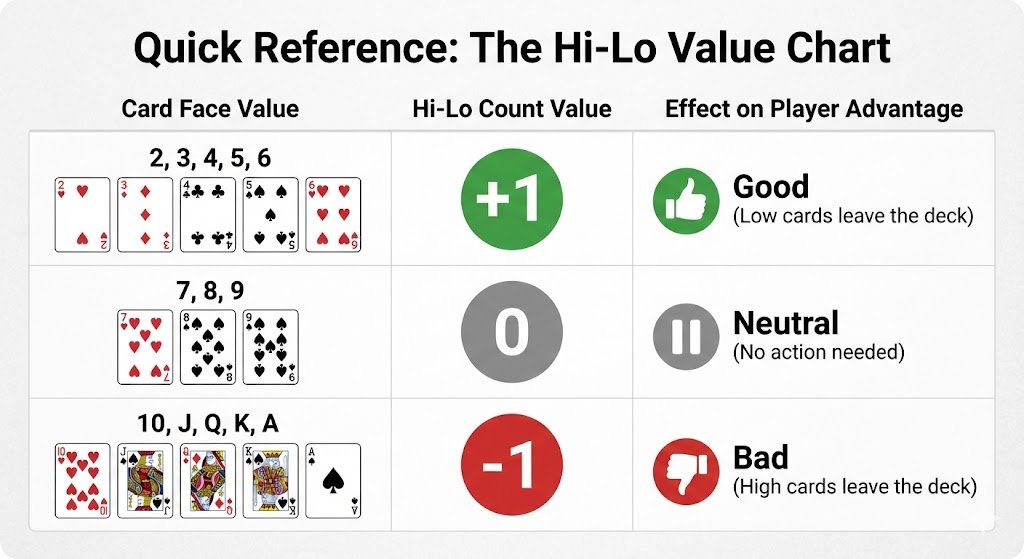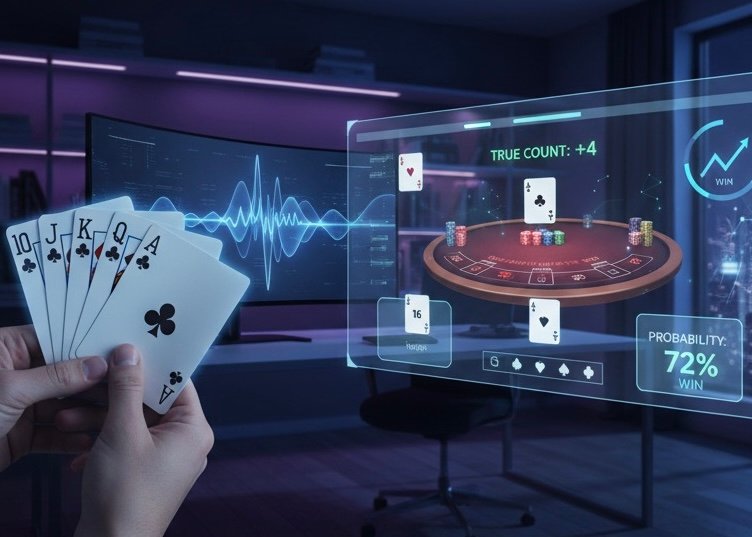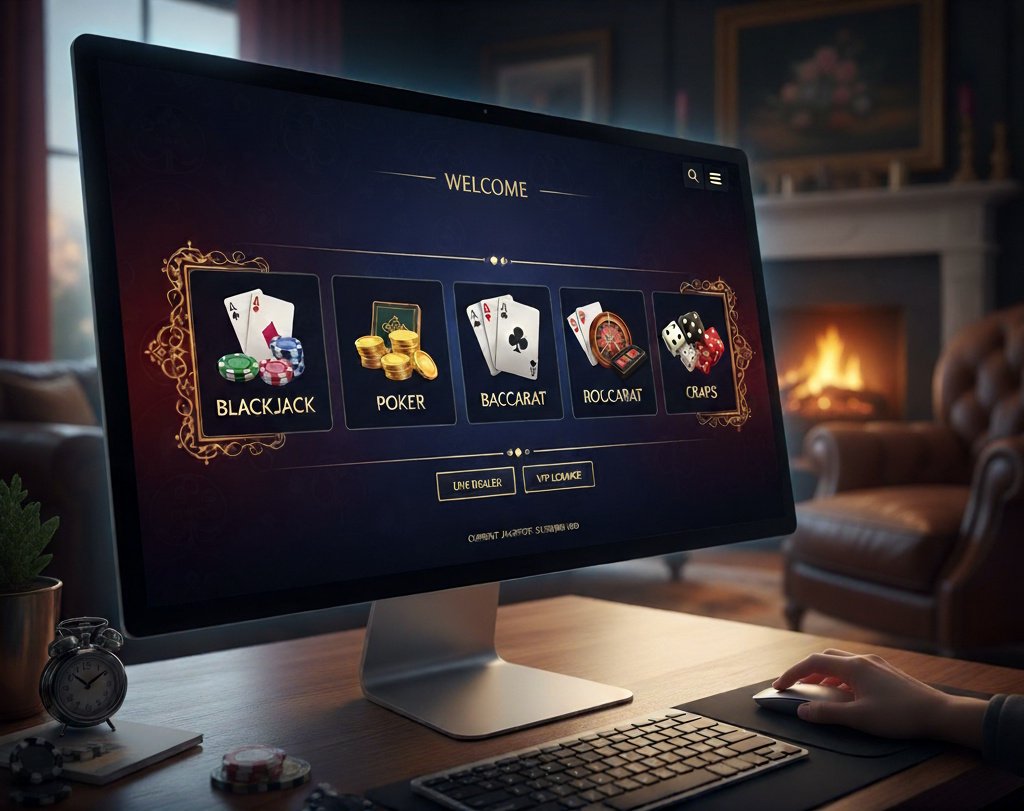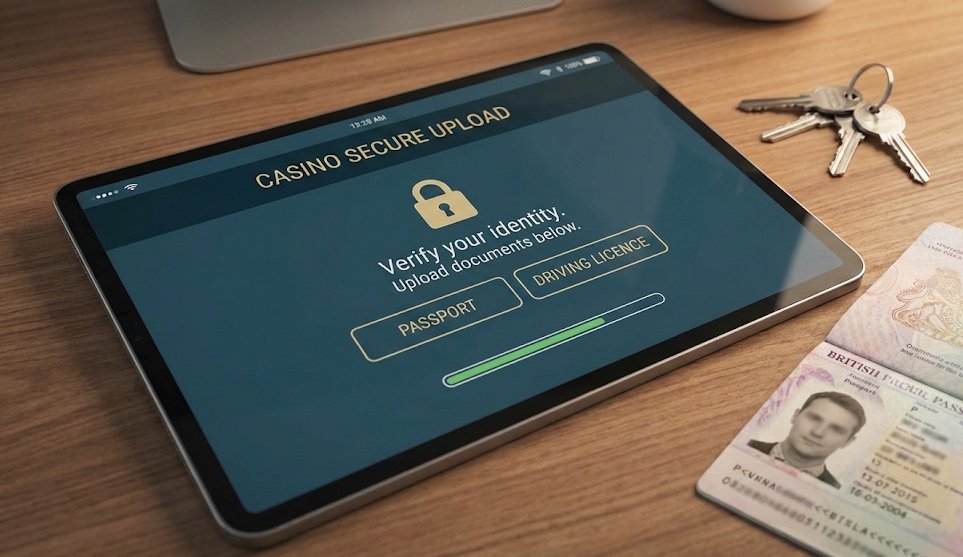Key Takeaways:
- Fundamental Mechanics: Card counting tracks the ratio of high to low cards remaining in the shoe to identify when the statistical advantage shifts in favour of the player.
- Online Limitations: Most standard online blackjack games use Random Number Generators (RNGs) that shuffle after every hand, rendering traditional counting techniques ineffective.
- Live Dealer Opportunities: While theoretically possible in Live Dealer games, reduced deck penetration and frequent shuffles make gaining a tangible edge significantly harder than in land-based venues.
The concept of card counting has long held a mythical status in the world of gambling. Immortalised by Hollywood films and legendary teams like the MIT students, it is often viewed as the ultimate weapon against the house. However, the transition from physical felt to digital screens has fundamentally altered the landscape. At The Casino Count, we are committed to dissecting these nuances, ensuring players understand the reality behind the romance.
Card counting is not about memorising every card that has been played; it is about tracking the composition of the remaining deck. In this comprehensive guide, we will explore how this mathematical strategy translates to the virtual environment, distinguishing between Random Number Generators (RNG) and Live Dealer tables, and whether this advantage play is a viable strategy for the modern online player. Explore part of the exciting story of card counting by reading about the MIT Blackjack Team.
The Theory: Why Card Counting Works
Before examining the online specificities, one must understand the core principle of counting. It relies on the fact that high cards (10s, Face Cards, Aces) benefit the player, while low cards (2, 3, 4, 5, 6) benefit the dealer.
When the shoe is rich in high cards, two distinct advantages emerge for the player:
- Blackjacks are more frequent: Players are paid 3:2 (or sometimes 6:5, which should be avoided) on a blackjack. The dealer, however, only gets their bet back if they hit blackjack.
- Dealer Busts increase: The dealer is forced to hit on stiff hands (typically 12-16). A deck rich in 10-value cards makes it statistically more likely for the dealer to bust when drawing to these totals.
Conversely, when the deck is rich in low cards, the dealer is less likely to bust, and the player is less likely to be dealt a natural blackjack. The counter uses this information to increase their bets when the “count” is high (favourable) and decrease them when it is low (unfavourable).
While understanding this specific rule is vital, it is just one piece of the puzzle. To see how this fits into the broader winning approach, we recommend studying our full breakdown in part of our comprehensive online blackjack strategy guide.
The Mechanics: The Hi-Lo System

While there are complex systems involving side counts and aces, the most widely used method is the Hi-Lo System. It assigns a specific value to every card that lands on the table:
- Low Cards (2, 3, 4, 5, 6): +1
- Neutral Cards (7, 8, 9): 0
- High Cards (10, J, Q, K, A): -1
Quick Reference: The Hi-Lo Value Chart
| Card Face Value | Hi-Lo Count Value | Effect on Player Advantage |
|---|---|---|
| 2, 3, 4, 5, 6 | +1 | Good (Low cards leave the deck) |
| 7, 8, 9 | 0 | Neutral (No action needed) |
| 10, J, Q, K, A | -1 | Bad (High cards leave the deck) |
How to Practice Card Counting Online (Risk-Free)
While we have established that counting cards in RNG (software-based) blackjack games is ineffective for generating profit, these free-to-play games are actually the perfect training ground for sharpening your skills before stepping into a live environment.
Because the computer deals instantly and perfectly, you can use “Play Money” modes to practice keeping a running count without risking a penny of your bankroll.
Drill 1: The Single Card Countdown
- Open a free “Demo Mode” blackjack game.
- Ignore the game strategy for a moment. Just deal the cards.
- As every card hits the virtual felt, mentally assign its value (+1, 0, or -1).
- Goal: Keep up with the speed of the software deal. If you lose the count, start over.
Drill 2: The Pairs Cancellation
When playing online, cards often come out in pairs or clusters. Experienced counters do not count “One… Two… Three.” They see patterns.
- If you see a Queen (-1) and a Five (+1) dealt together, they cancel each other out. The count is 0.
- If you see two Jacks, the count is -2.
- Goal: Scan the whole table at once rather than counting individual cards.
Pro Tip: Do not bet based on the count during these drills. The goal here is purely mental agility, not winning the fake money.
The Running Count vs. The True Count
As cards are dealt, the player keeps a “Running Count”. If three low cards and one high card appear, the running count is +2. However, a running count of +5 is far more significant if there is only one deck remaining compared to six decks remaining.
To adjust for this, professionals calculate the True Count:
- True Count = Running Count ÷ Decks Remaining
If your running count is +10 and there are 5 decks left in the shoe, your True Count is +2. This figure dictates the betting spread and deviations from basic strategy. For those just starting, mastering these mechanics is the next step after learning how to play blackjack in an online casino.
The Reality of Online RNG Blackjack
This is where the aspiring counter often hits a wall. The majority of “standard” online blackjack games—those that are purely digital graphics with no human dealer—are powered by a Random Number Generator (RNG).
In an RNG game, the software simulates a fresh shuffle of the entire deck (or multiple decks) before every single hand. Even if a player sees ten aces dealt in the previous round, the probability of receiving an ace in the next hand remains exactly the same. The deck has no “memory.”
Therefore, attempting to count cards in an RNG blackjack game is mathematically futile. The count is effectively reset to zero after every deal. For these games, your best approach is strict adherence to basic strategy to minimise the house edge, rather than attempting advantage play.
Live Dealer Blackjack: A Different Beast?
Live Dealer games stream a human croupier dealing physical cards from a studio in real-time. This format reintroduces the physical shoe, which theoretically opens the door for card counting. However, online casinos are acutely aware of this and have implemented countermeasures that make it significantly more difficult than in a brick-and-mortar establishment.
1. Deck Penetration
The primary enemy of the online card counter is poor “deck penetration.” Penetration refers to how deeply the dealer deals into the shoe before shuffling.
- Ideally: A counter wants to see 75% to 85% of the shoe dealt (e.g., 4.5 to 5 decks out of 6). This allows for a higher variance in the count and more accurate True Count calculations.
- Online Reality: Most Live Dealer studios instruct dealers to insert the “cut card” (the shuffle point) very early, often when only 50% of the shoe has been played. When half the cards are left in the shoe after shuffling, the variance is reduced, and high positive counts occur less frequently.
2. Game Speed and Rounds per Hour
Profitable card counting requires volume. In a land-based casino, you might play 60 to 100 hands per hour, or more if heads-up against the dealer. Online Live Dealer games can be notoriously slow due to the time allowed for players to place bets and make decisions. Fewer hands per hour means it takes longer for the “long run” to materialise, increasing the impact of short-term variance.
3. Continuous Shuffle Machines (CSMs)
Some online Live Dealer tables utilise Continuous Shuffle Machines. Unlike a standard shoe, where played cards are discarded until the cut card is reached, a CSM recycles the cards back into the machine immediately after every hand. This mimics the effect of RNG shuffling, rendering card counting impossible. Always check if the dealer is placing used cards into a discard tray or returning them to the shuffling machine.
The “Wonging” Strategy in Live Dealer Games
Named after the legendary blackjack author Stanford Wong, “Wonging” (or back-counting) is a technique where a player stands behind a table and counts the cards without placing a bet. They only sit down and start playing when the True Count becomes positive (favourable).
In a physical casino, this is frowned upon and can get you barred. Online Live Dealer blackjack presents a unique set of challenges and opportunities.
Can You “Wong” Online?
Technically, yes. You can open a Live Dealer table and watch the stream without betting. However, two major hurdles exist in the digital space:
- The “No Bet” Kick: Most online software will disconnect you from the table if you haven’t placed a bet for 2 or 3 consecutive rounds. This makes sitting and waiting for a hot shoe difficult.
- Table Capacity: When a shoe finally gets “hot” (positive count), the table is usually full. Unlike a physical casino, where you might jump in mid-shoe, online tables often have a queue. If you leave your seat to wait for a count, you likely won’t get it back in time.
The Workaround: Some professional online players use a strategy of “Flat Betting” (betting the table minimum) while the count is neutral or negative, solely to hold their seat. They only ramp up their bets aggressively when the count spikes. This eats into potential profits due to the house edge on the minimum bets, but it secures your spot for the high-value hands.
Strategy Deviations and Betting Spreads
Suppose you do find a Live Dealer game with a manually shuffled shoe and reasonable penetration (which is rare but possible). In that case, the strategy involves two main components: Bet Spreading and Playing Deviations.
- Bet Spreading: This involves wagering the table minimum when the count is negative or neutral, and significantly increasing the wager when the True Count rises. Online, aggressive bet jumping (e.g., going from £5 to £100 instantly) can trigger software alerts, flagging the account for review.
- Playing Deviations: This involves altering your playing decision based on the count. For example, the basic strategy advises hitting a 16 against a dealer’s 10. However, if the count is very high (meaning many 10s remain), the probability of busting is higher, so a counter might stand.
To understand the baseline from which you are deviating, we recommend consulting our extensive online casino games guide, which provides a solid foundation for optimal play.
Is Card Counting Illegal?
There is a pervasive myth that card counting is illegal. In the UK and most jurisdictions, using your brain to process public information (the visible cards) is not illegal. You are not altering the game device or cheating.
However, casinos are private businesses. They have the right to refuse service. In a land-based casino, you might be “backed off” (asked to stop playing blackjack) or barred. Online, the terms and conditions often include vague clauses regarding “irregular play” or “bonus abuse.” If an online casino suspects you are an advantage player, they may restrict your account, limit your maximum bet, or exclude you from promotions.
The Psychological and Financial Demands
Beyond the mathematics, card counting requires immense discipline. It is not a “get rich quick” scheme.
- Bankroll Management: To weather the inevitable losing streaks (variance), a counter needs a substantial bankroll. Even with a perfect count, the dealer can still draw a 21.
- The Grind: Playing with a perfect technical game for hours, while facing slow game speeds and poor penetration, yields a very small hourly expected value (EV). For many, the time investment versus the potential return in the online environment does not stack up.
Alternatives to Counting Online
Given the hurdles of counting online, players looking to maximise their return to player (RTP) percentages should focus on:
- Perfect Basic Strategy: Reducing the house edge to roughly 0.5%.
- Game Selection: Choosing games with favourable rules (e.g., Blackjack pays 3:2, Dealer stands on Soft 17, Double after Split allowed).
- Bonus Hunting: Utilising casino bonuses with fair wagering requirements can sometimes provide a mathematical edge greater than counting.
For the latest updates on strategies, game reviews, and industry news, keep an eye on our latest insights.
Frequently Asked Questions About Online Card Counting
Can I use card counting software or apps while playing online?
While physical casinos ban devices, using a counting app at home is technically possible. However, online casinos have sophisticated security teams. If your betting patterns perfectly match a computer algorithm’s suggestions, your account may be flagged for “advantage play,” leading to restrictions. Furthermore, in RNG games, software is useless because the deck is shuffled every hand.
Is card counting illegal in the UK?
No, card counting is not illegal in the United Kingdom. It is a mental skill, not cheating. However, casinos are private businesses and reserve the right to refuse service to anyone. If they suspect you are counting, they can legally ban you or restrict your account.
What is the best card counting system for beginners?
The Hi-Lo System is the industry standard for a reason. It offers the perfect balance between simplicity (ease of learning) and betting efficiency (power). More complex systems like “Omega II” or “Hi-Opt I” offer only marginal gains but are significantly harder to execute without errors.
Do online live dealers shuffle after every hand?
No. Live dealers typically use a “shoe” containing 6 to 8 decks. However, they often use a “cut card” placed in the middle of the shoe, meaning they might shuffle after only 50% of the cards have been dealt. This “shallow penetration” makes card counting much less effective than in real-world casinos.
Conclusion
Card counting remains a mathematically valid strategy for beating the house, but its efficacy in the realm of online blackjack is severely restricted. The prevalence of RNG shuffling and the poor deck penetration at Live Dealer tables act as significant buffers against advantage play.
While it is a fascinating skill to learn and can deepen your appreciation of the game’s probability, treating it as a primary source of income online is fraught with difficulty. For the vast majority of players, the best approach is to master basic strategy, manage your bankroll responsibly, and view the game as a form of entertainment rather than a means to generate revenue.
If you require further guidance on blackjack strategies or have questions about casino game rules, the team at The Casino Count is here to assist.
Contact Us:
- Email: info@thecasinocount.com
- Web: www.thecasinocount.com
Disclaimer: Gambling involves risk. Please gamble responsibly and only bet what you can afford to lose.






Leave a Reply